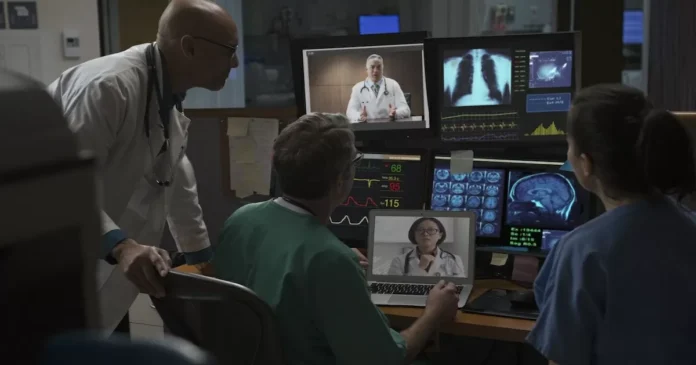The field of oncology has been rapidly advancing with the introduction of new technologies and treatments. However, the sheer amount of information and data that doctors need to process can often become overwhelming and time-consuming. This is where the orchestrator comes in – a powerful tool that includes customizable, multimodal AI agents to streamline oncology workflows like tumor boards and improve clinical decision-making.
The orchestrator is a revolutionary platform that integrates multiple AI technologies to assist healthcare professionals in managing the complex and ever-evolving world of oncology. It is designed to be user-friendly and accessible to all levels of medical professionals, from physicians to nurses to researchers. With the help of this platform, healthcare professionals can save time, improve accuracy, and deliver better patient outcomes.
One of the key features of the orchestrator is its customizable AI agents. These agents are programmed to understand the specific needs and preferences of each healthcare professional, allowing them to tailor the platform to their individual workflows. This level of customization not only saves time but also ensures that the platform works seamlessly with the existing systems and processes in place.
Moreover, the orchestrator’s AI agents are multimodal, which means they can process data from various sources, including electronic health records, imaging systems, and lab results. This allows for a more comprehensive understanding of the patient’s condition and helps doctors make more informed decisions. By combining data from different sources, the orchestrator can identify patterns and trends that humans may not have noticed, leading to earlier detection of diseases and more accurate diagnoses.
The use of AI in healthcare has been a topic of debate, with concerns about the replacement of human doctors. However, the orchestrator is not meant to replace doctors but to assist them. The platform’s AI agents work in tandem with healthcare professionals, providing them with the necessary information and insights to make well-informed decisions. This collaboration between human expertise and AI technology is what makes the orchestrator so powerful.
One of the most significant impacts of the orchestrator is in tumor boards, which are an essential part of oncology workflows. Tumor boards bring together a multidisciplinary team of healthcare professionals to discuss and evaluate the best treatment options for a patient. With the help of the orchestrator, these tumor boards can be more efficient, productive, and accurate.
The orchestrator can collect and analyze data from various sources, including patient records, lab results, and imaging systems, to prepare a comprehensive report for the tumor board. This report includes all the relevant information, such as the patient’s medical history, current condition, and potential treatment options. By having all the necessary data in one place, the tumor board can focus on discussing and making decisions rather than spending hours gathering and reviewing information.
In addition to streamlining workflows, the orchestrator also improves clinical decision-making. The platform’s AI agents use advanced algorithms to analyze data and provide insights that can aid doctors in making critical decisions. This not only saves time but also reduces the likelihood of human error, leading to better patient outcomes.
Furthermore, the orchestrator is continuously evolving and learning, thanks to its machine learning capabilities. As doctors use the platform, it becomes more efficient and accurate at understanding their specific needs and preferences, making the entire process smoother and more effective.
In conclusion, the orchestrator is a game-changer in the world of oncology. Its customizable, multimodal AI agents streamline workflows like tumor boards and improve clinical decision-making. The platform not only saves time and improves accuracy but also enhances collaboration between healthcare professionals and AI technology. With the orchestrator, the future of oncology looks brighter, and patients can receive better care and treatment.

